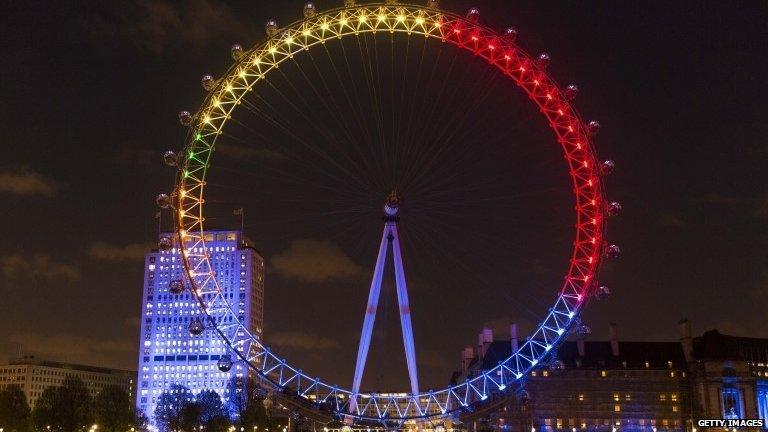An election that really matters
- Published
- comments

The conventional view among my media colleagues, who are these days often called the commentariat, is that the general election has been dull, the parties' campaigns mediocre and the choice one of Hobson's.
I could not disagree more.
Naturally, wearing my economic editor's hat, I can be sad that there hasn't been more explicit debate on the wealth-creating imperatives of boosting lacklustre productivity, reducing record personal debts and re-engineering our corporate sector to cope with the Ubers and the indomitable new sharing economy.
But the issues that are on the table are huge, arguably the most important of my political lifetime.
The choice between whether to have a referendum on membership of the European Union (EU) - offered by Tories and UKIP, declined by Labour, LibDem and SNP - is massive.
Leaving the EU would have a profound impact on our economy, immigration and culture. For better or worse it matters.
European reform
And for what it is worth, the consensus among mainstream economists and leaders of big businesses is that David Cameron's aim of using the referendum to secure EU reforms is a laudable one.
But they would also argue that the costs of leaving the EU, reformed or not, would be big.
Nigel Farage and many of you would disagree.
But you can't complain this is trivial stuff.
Likewise what is going on in Scotland will shape the whole UK.
If the SNP secures 50% of the vote in Scotland, that represents a vote by Scots for more control over their economic and cultural (that word again) destiny.
It is difficult to see how that shift of sovereignty north could be resisted - whether to maximum devolved control of taxes and welfare, or ultimately national secession.
Either way, the impact - economically and culturally (sorry) - for the whole UK cannot be over-stated (as we learned in last year's referendum).
And even if you don't live in Scotland, you should ponder which other parties best capture your views about whether the Scots should be ushered towards the exit or urged to stay in the union.
And two other things.
New Labour shift
Ed Miliband represents a big break with the New Labour of Tony Blair and Gordon Brown, because of his explicit promise of higher taxes on the highest earners and the wealthy, and with his shift to much greater economic interventionism.
Whether you think his mandating of a higher minimum wage, his cap on energy prices, his determination to break-up banks and his raid on non-doms are wealth-destroying meddling or fairness-enhancing reforms, they are not same-old, same-old.
And finally even the often sterile debate on how, and how fast. to reduce the gap between taxes and spending - how rapidly to shrink the deficit and start cutting the record national debt - is a big one.
Take just one aspect, the Tories' plan to reduce welfare bills by a further £12bn.
You can see this as either essential to make the nation's balance sheet more resistant to inevitable shocks and an imperative to improve work incentives.
Or you can see it as an attack on the poorest and most vulnerable.
Either way it represents a highly significant difference between the Tories on the one hand and Labour, LibDems and SNP.
Now even if I were not constrained by BBC impartiality rules, I would not have the chutzpah to tell you how to vote.
But please don't moan to me that this vote does not matter.
When the party leaders tell you this is the most important election in a generation, for once they are spot on.